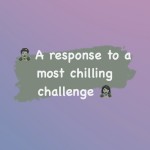I really doubt that anyone would argue with me if I were to say that we are in a crisis. The problem though, is one of definition.
“Crisis” originally comes from the Greek krinein – To Decide. A crisis does not necessarily denote turmoil or suffering, but a crossroads. A path split in two, with the decision to travel one path resulting in the destruction of the other like Sylvia Plath’s figs.
We are certainly in a crisis; and the decisions made right now by teachers, administrators, and policy makers are certain to have long-lasting effects on the American educational system.
Most people I’ve talked to want nothing more than the return to the “way things were”. This is a reasonable reaction. The first stage is denial.
I’ve also heard a lot of talk about an ill-defined “new-normal” which seems to be little more than a Weekend at Bernie’s style riff of the old model, propped up with naïve hope to look like it’s new and hip despite its very much being dead. This is also reasonable. Bargaining is part of the process.
As for anger and depression, well; I feel like we’ve been circling that drain for a while now.
None of these, though, offer a solution. They are not even solution-oriented. They are passive daydreams, and dwelling on them will only extend the problem.
This isn’t just a new way vs old way problem. I argue that the obstacles and frustrations we are having with what is new is really just an exacerbation of the cracks and flaws that once could be easily overlooked in the old.
Online learning has made it necessary for me to pare down my lessons to roughly 10-20 minutes in order to allow for “mastery” of shallow state standards completely alienated from content knowledge or critical thinking.
In this country, we have systematically disassembled piecemeal the idea of an education rich in the sciences and humanities in favor of narrowly-defined testing metrics. This disassembly increased greatly in frequency and desperation after No Child Left Behind. ESSA eased this problem, but still kept the same trajectory and goal. In essence, these policies put inordinate pressure on students, teachers, and schools to quantify education.
This quantification has insinuated itself into the way we view the means and purpose of education. It has fundamentally changed the conversation from lighting fires to filling pails. We are not equipping students to become autonomous, free-thinking citizens, we are training them to jump through hoops for a prize.
We are in a crisis; and we must decide whether to wax nostalgic for days of yore, or change the paradigm. I believe we have been given the opportunity to start the ball rolling in the direction of the whole person rather than HP, PP, MP — with teachers as content specialists capable of fostering curiosity and exploration instead of acting as assembly line knowledge-curators – to provide students with the skills and knowledge that designate and signify a person as free and autonomous (in the Kantian sense), capable of rich participation in society.
The following connection is hackneyed and melodramatic, but I’m going to make it anyway:
The destruction wrought by The Black Plague absolutely gutted Europe’s labor pool. As a result, the lower classes found they could leverage the newfound demand of their time and talent for increased social, economic, and physical mobility, which in turn undermined the rigid authority of the ruling classes. Without this pressure from the professional and working classes and serfs, there is no reason to assume that there would have been any disturbance in the Medieval customs, governance, thought, or wealth distribution which would ultimately lead to the Renaissance.
Arizona is currently facing a crippling teacher shortage. Last I checked, 28% of classrooms state-wide lack a certified teacher. This shortage, coupled with the collective frustrations of all who have even the most superficial of stakes in the educational system, could easily be leveraged to produce much-needed reforms at all levels of education; or it could be spent reactively thinking about the Medieval “good old days” which, upon scrutiny, may not have been that good at all; we were just acclimated to them.
As for ushering in the Renaissance, I’m open to suggestions.








